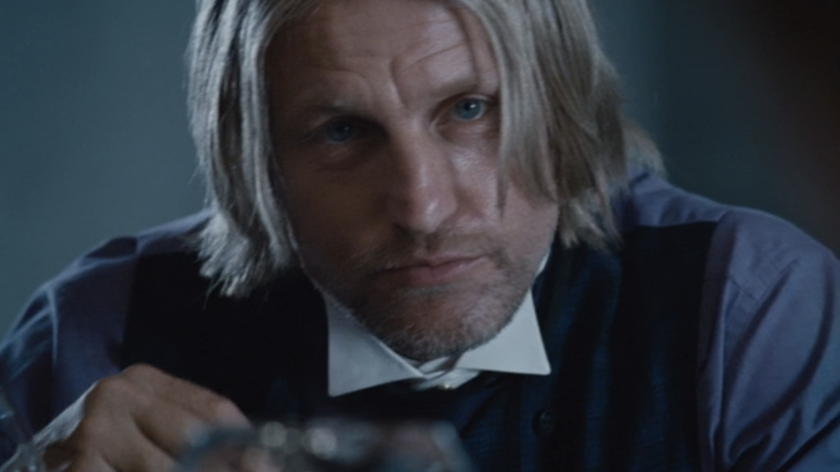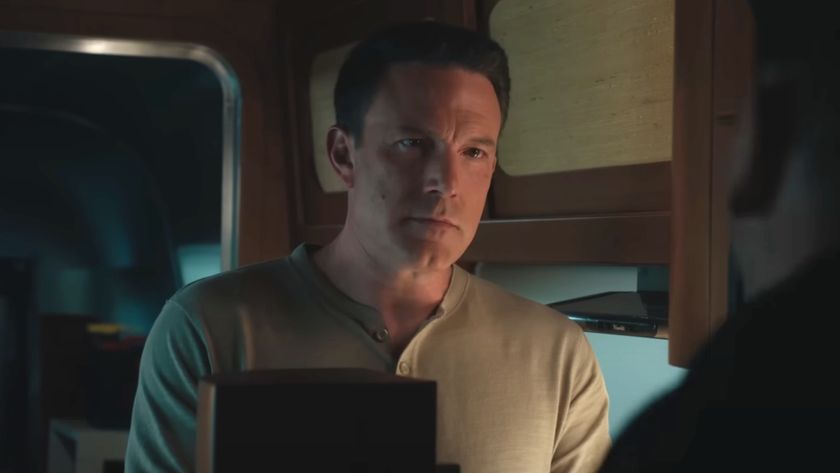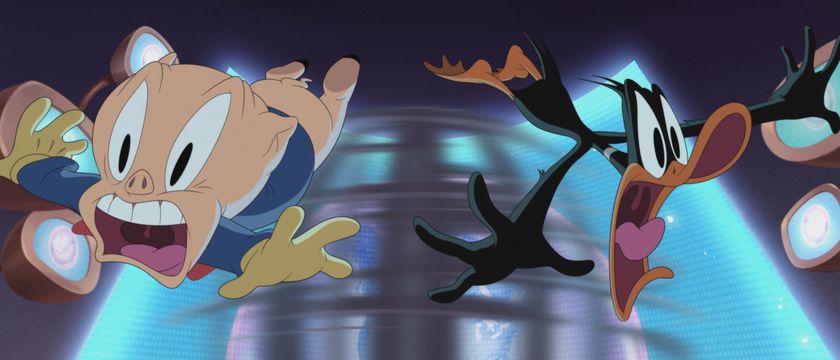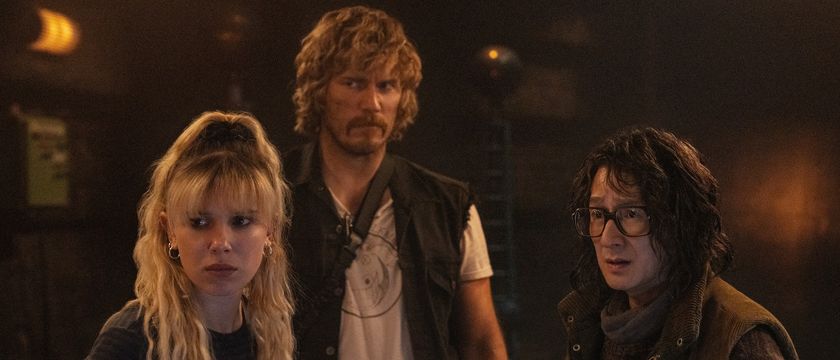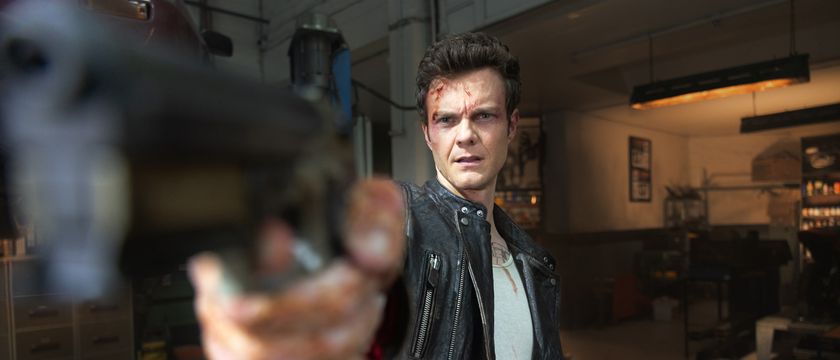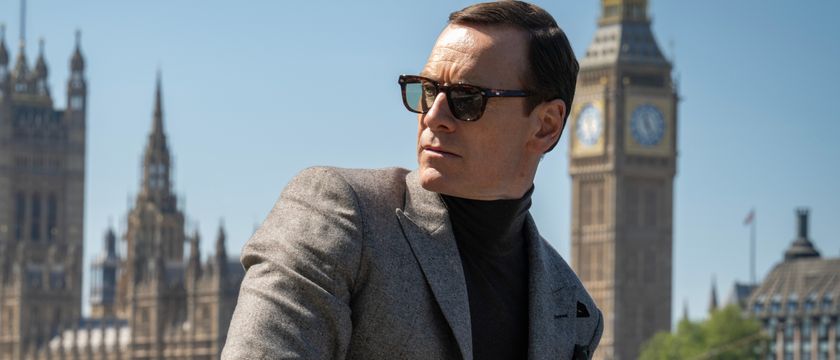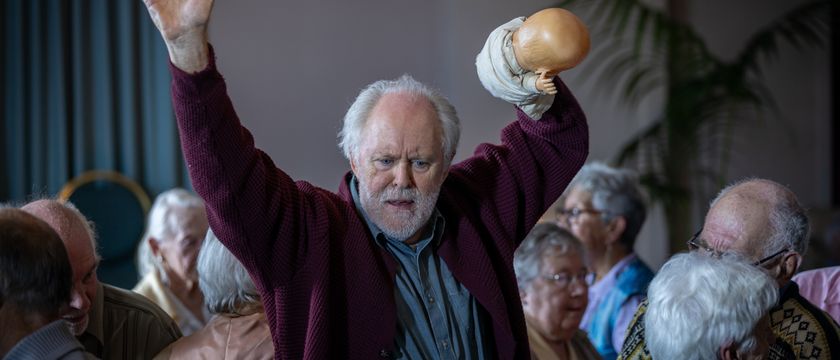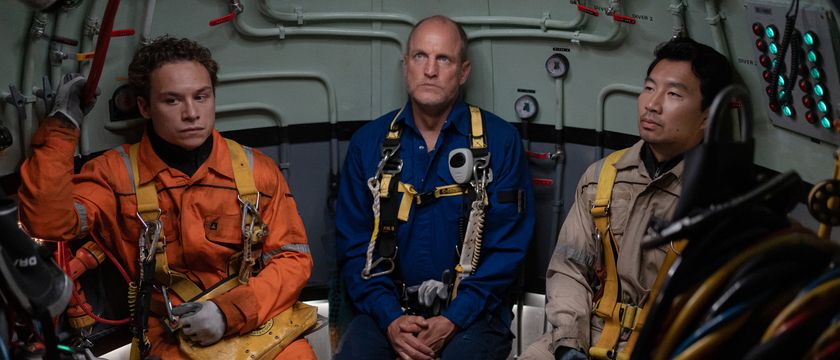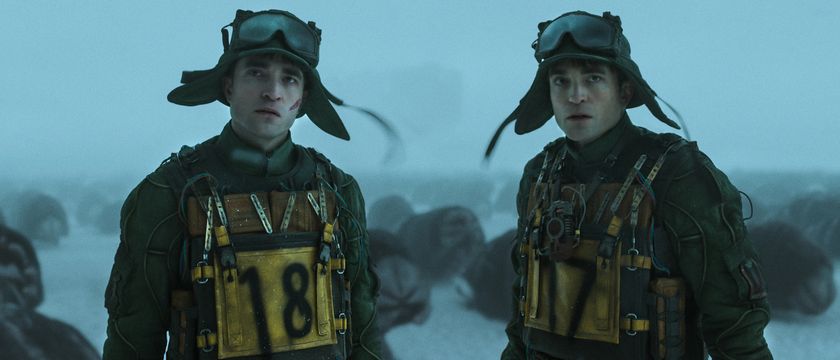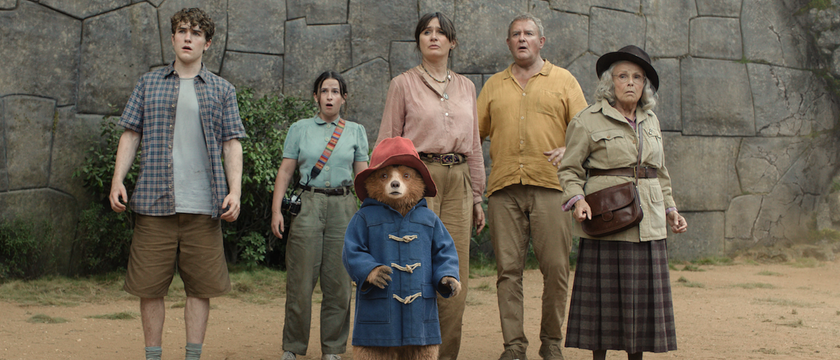American Ultra is one of those films that – frustratingly, annoyingly – begins at its end. Mike (Jesse Eisenberg) sits in a nondescript interrogation room, handcuffed to the table. He’s battered, beaten and bloody. An agent approaches him, lays out a series of photographs, and asks Mike where he’d like to begin. The movie then rewinds, somewhat swiftly, through EVERY key scene that’s about to be played out in American Ultra, successfully spoiling our movie-going experience while also eliminating any and all suspense about Mike’s fate on what ends up being a deadly day.
That’s the first of several curious decisions that ensure that American Ultra never lives up to its full potential. Not that the movie ever really was going to amount to much more than a one-joke stoner action comedy. But in the cracks and crevices of this routine premise, one could find ways to color outside of the lines and really juice up what is being presented on screen. Unfortunately, most of the times that Ultra director Nima Nourizadeh (Project X) could have stepped outside of the box, he decides not to – for reasons I can’t really explain.
Mike is a West Virginia convenience store clerk with a pretty girlfriend named Phoebe (Kristen Stewart) and a penchant for smoking weed. We’re told that Mike would love to propose to Phoebe one day, but his crippling panic attacks foil almost every plan he has to stage an elaborate, surprise engagement. Ten minutes into American Ultra, we’re tipped off to the fact that this won’t be Romeo & Juliet on recreational drugs. A satellite hovers over Mike’s rundown town, and we follow its signal back to the CIA, where disgruntled section chief Adrian Yates (Topher Grace) orders that the remnants of the failed Ultra program be wiped off the map. Yates is opposed by former Ultra head Victoria Lasseter (Connie Britton), who begs for Mike’s life to be spared. In order to protect her former protégé, Victoria “activates” Mike – revealing his to be an actual assassin in hiding.
It’s an unusual concept, and one that could open the doors to some colorfully bizarre detours through stock spy-thriller clichés. Sadly, only John Leguizamo – cast as Mike’s dealer, Rose, who’s a larger-than-life, West Virginia-style Scarface character – saw the inherent lunacy of American Ultra and decided to play it over the top… which is how everyone should have approached the material. To their credit, Jesse Eisenberg and Kristen Stewart are anything but scenery chewers, and they bring an expectedly reserved approach to their relationship. Mike’s appropriately freaked out by the odd happenings in his life, and Eisenberg brings an existential wisdom to the stoner’s humorous wanderings, as when Mike asks Phoebe if he’s actually a robot. (In the context of everything that is happening around them, that question isn’t really that far-fetched.)
American Ultra largely resembles a movie that could have gleefully gone over the edge, but lacks the confidence in its own premise to truly get as weird or as funky as the concept demands that it goes. Certain scenes hint at the surrealness of the plot, as when Mike and Phoebe hide out in Rose’s basement, which is blacklit like an Iron Maiden poster from the 1980s. It’s a funny visual scene, but Eisenberg and Stewart play it so straight, it’s like they didn’t realize what was funny about it. That describes too much of American Ultra. On paper, it’s funny, but the people making it don’t understand what’s funny about it, so it’s never funny enough.
What about the action? Similar problems arise. The movie could have plunged into its hyperstylized violence, unleashing Mike as a lethal weapon against an army of escalating bad guys. Yet, while we get Walton Goggins as a thinly sketched killer nicknamed Laugher (because he cackles a lot… get it?), the eventual showdown between Mike and Yates’ trained forces ends before it even starts, with Mike dispatching his enemies with the greatest of ease. Yates is another lingering issue plaguing the film. He’s written beautifully, and the part needed to be handed to an Alec Baldwin-type – an older character actor who relishes the chance to play government assholes who are drunk on power. That’s not Topher Grace. That will never BE Topher Grace. So handing that role to Topher Grace is a shame. The same can be said for Eisenberg, who could have (and should have) played off the natural dichotomy of a skinny stoner suddenly able to contend with hulking military soldiers, but neither the actor nor the film seem invested with playing around with that entertaining missive. Again, it’s like the film didn’t realize what it had at its fingertips, so it just left it lying there, flat.
That’s where American Ultra left me, disappointed at the end result when I saw so much potential in the folds of the story idea. Actually, I was off just a bit in my opening paragraph. Mike’s interrogation scene isn’t really the final shot in American Ultra. The movie in fact ends with a hint toward a possible franchise future – a mission that could lead to sequels built around Mike and Phoebe as government agents. Let’s not, though, and just say that we did, okay?

Sean O’Connell is a journalist and CinemaBlend’s Managing Editor. Having been with the site since 2011, Sean interviewed myriad directors, actors and producers, and created ReelBlend, which he proudly cohosts with Jake Hamilton and Kevin McCarthy. And he's the author of RELEASE THE SNYDER CUT, the Spider-Man history book WITH GREAT POWER, and an upcoming book about Bruce Willis.

